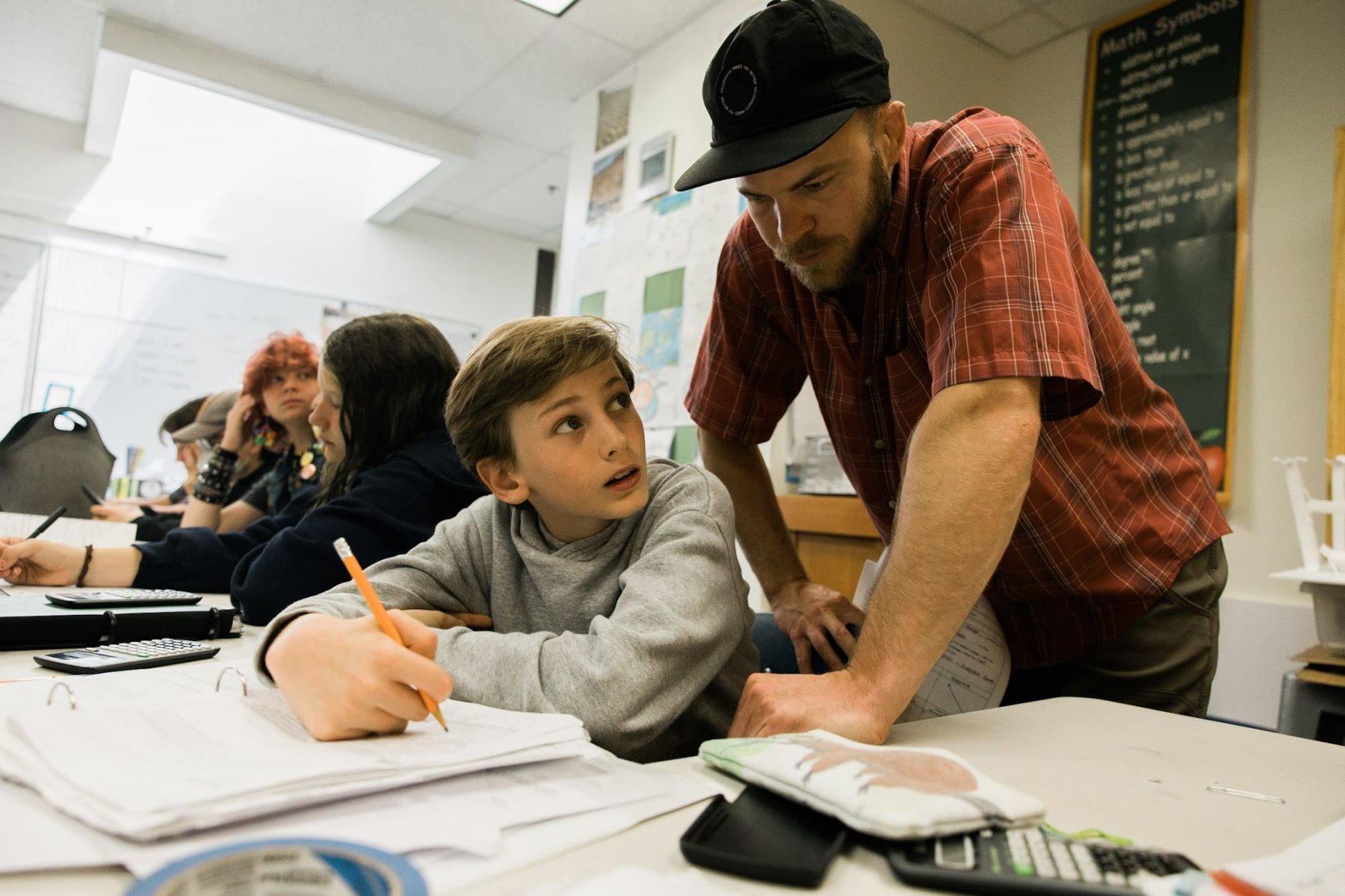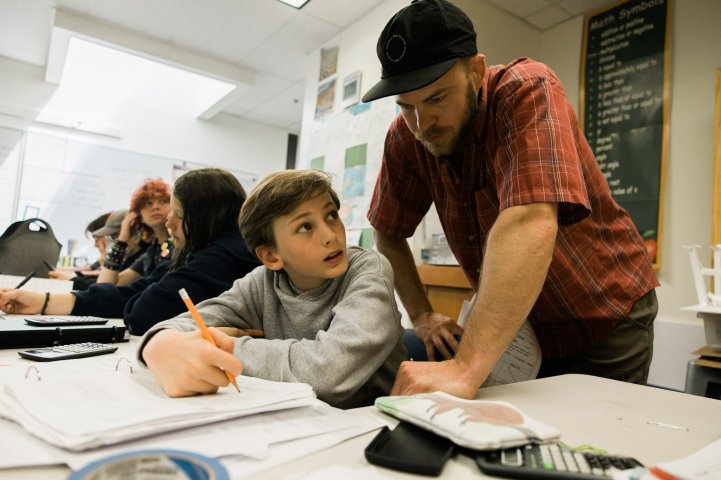Narrative Assessment
A creative, responsive curriculum merits meaningful, authentic assessment. Waverly teachers use many techniques for measuring and sharing student progress. They check for understanding and growth on a daily basis through observation and evaluation of written and spoken expression. Students may create projects, write papers, or present research either individually or as part of a small group. Teacher feedback comes as detailed written suggestions on an assignment or as verbal responses in the context of a class discussion. Teachers guide self-reflection and peer review, as well. While teachers may occasionally use quizzes or tests to evaluate understanding, testing is not the ultimate measure of ability, knowledge, or performance.
Waverly believes that a focus on letter grades distracts students from the most important elements of their education. Here, the emphasis is on individual academic progress rather than grades. Teachers write narrative analyses of student work and cumulative progress reports to provide more insight into the intellectual development of each student than can be indicated through letter grades. Students receive the narrative assessments at the end of each semester. These reports highlight strengths and areas for growth. Because of our consistent emphasis on the importance of positive, caring relationships, Waverly is a safe environment to offer and receive constructive feedback. Additionally, because of the small student-to-teacher ratio, teachers are able to confer with one another frequently to discuss the academic, social, and behavioral needs of the students.
For the purposes of 9th grade course placement, letter grades are recorded on a cumulative transcript for 8th grade students in Algebra I, Geometry, and Spanish I. If students apply to high schools other than Waverly, these grades will be made available and sent as part of the student’s transcript.





